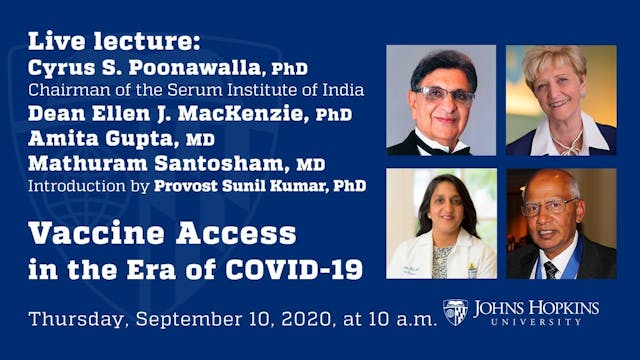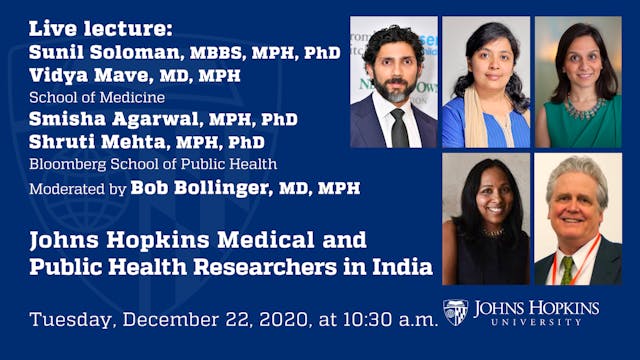Super-spreading Events: Lessons from India on Containment of COVID-19
India Institute
•
59m
As global COVID-19 caseloads accelerate and winter approaches in the Northern Hemisphere, a study in India may have delivered some key insights into the disease’s transmission. The study, co-authored by Hopkins scientist Brian Wahl, leveraged India’s extensive contact tracing to conduct the world’s largest epidemiological study of the pandemic to date, shedding new light on the nature and impact of super-spreading events, how and why the majority of the world’s cases are occurring in low-resource contexts, and other significant findings. Join Dr. Jennifer Nuzzo, Senior Scholar at the Center for Health Security at the Johns Hopkins Bloomberg School of Public Health, for a conversation with Dr. Wahl and Dr. Sanjay Mehendale, Director of Research at PD Hinduja Hospital and Medical Research Center in Mumbai, on what we can learn from India about pandemic safety. To learn more, visit jhu.edu/hopkinsathome
Up Next in India Institute
-
Vaccine Access in the Era of COVID-19...
According to the World Health Organization, immunization currently prevents 2-3 million deaths a year and is one of the greatest successful and cost-effective public health interventions. With the continued spread of COVID-19, there is heightened attention on the need for an effective vaccine as ...
-
A Conversation with Johns Hopkins Med...
Join the Johns Hopkins India Institute for a look at Hopkins research projects in India involving access to care for at-risk populations, tuberculosis studies, maternal-child health, and leveraging innovative technological solutions.
Sunil Solomon, MBBS, MPH '04, PhD '09 is an Assistant Professo...


